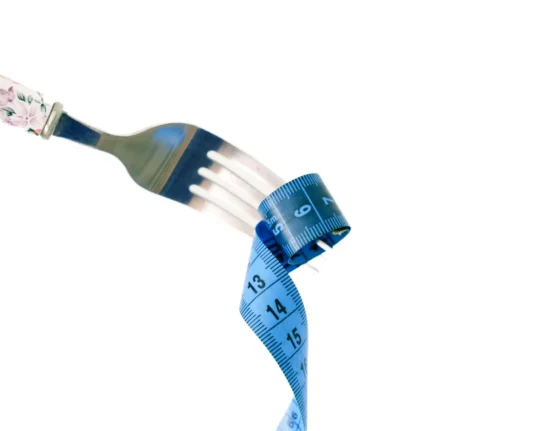Ever been tempted by those “lose 10 pounds in a week” ads? We all have! The diet industry thrives on promising fast results. But what if I told you those quick fixes could do more harm than good?
“Quick weight loss” generally means dropping more than 1-2 pounds each week. This sounds great. However, rapid changes often come with serious health risks and usually aren’t sustainable. In this article, we’ll explore the safety of quick weight loss and the potential dangers of many fast weight loss methods.
What Qualifies as “Quick” Weight Loss?
Losing weight too fast isn’t a good idea. What’s considered “quick” and unhealthy? It’s essential to understand the difference between a safe pace and a dangerous one.
Medically Recommended Weight Loss Rate
Most healthcare experts say losing 1-2 pounds per week is healthy. This rate gives your body time to adjust. It also helps ensure you are losing fat, not muscle or water. Slow and steady wins the race when it comes to your health.
The Problem with Exceeding Recommended Rates
Why is losing weight too fast bad? Your body needs time to adapt. Rapid weight loss can shock your system. It can cause problems like muscle loss, nutritional deficiencies, and other health concerns. The faster you drop pounds, the higher the risk.
Common Methods for Rapid Weight Loss
Many diets and methods promise super fast results. Let’s look at a few and what you need to know.
Very Low-Calorie Diets (VLCDs)
VLCDs involve eating very few calories, usually 800 or less per day. Doctors sometimes use these for obese patients, but only under strict medical supervision. The benefit? Quick weight loss. The downside? Many:
- Nutrient deficiencies
- Muscle loss
- Fatigue
- Gallstones
These diets are NOT a good idea without a doctor’s go-ahead.
Extreme Exercise Regimens
Some people try to lose weight fast by working out like crazy. This means hours at the gym, very intense workouts, and little rest. While exercise is good, too much can cause:
- Injuries
- Exhaustion
- Stress fractures
- Hormone imbalances
Overtraining can also mess with your metabolism. You might even stop losing weight!
Weight Loss Supplements and Pills
The market is filled with pills and supplements promising to melt fat. They claim to boost metabolism, suppress appetite, or block fat absorption. However, many have side effects, such as:
- Increased heart rate
- High blood pressure
- Anxiety
- Digestive issues
Some supplements aren’t even tested for safety! Be very cautious about anything promising a “miracle” cure.
The Serious Health Risks of Rapid Weight Loss
Losing weight too fast can hurt your body in several ways. It’s more than just feeling tired. Here are some potential issues.
Muscle Loss and Metabolic Slowdown
When you lose weight fast, you often lose muscle mass. Muscle helps you burn calories. When you lose muscle, your metabolism slows down. This makes it harder to lose weight. It can even make you gain weight back later.
Gallstones and Electrolyte Imbalance
Rapid weight loss increases your risk of gallstones. It can also cause electrolyte imbalances. Electrolytes like sodium and potassium are important for heart and muscle function. An imbalance can cause:
- Irregular heartbeat
- Muscle cramps
- Seizures
These are serious problems that need medical attention.
Nutritional Deficiencies
Restrictive diets often lack essential nutrients. You might not get enough vitamins, minerals, and protein. This can lead to:
- Weakened immune system
- Hair loss
- Fatigue
- Brittle bones
Your body needs a variety of nutrients to function properly.
Psychological Impacts of Unrealistic Weight Loss Goals
Chasing quick fixes can also mess with your mind. It can lead to unhealthy thoughts and behaviors.
Disordered Eating Patterns
Trying to lose weight too fast can cause disordered eating. You might start skipping meals, severely restricting calories, or becoming obsessed with food labels. This can turn into:
- Anorexia
- Bulimia
- Binge eating disorder
These are serious mental health issues.
Body Image Issues and Depression
Unrealistic weight loss goals can hurt your self-esteem. If you don’t see results fast enough, you might feel like a failure. This can lead to:
- Anxiety
- Depression
- Body dysmorphia
It’s important to focus on feeling healthy, not just looking a certain way.
Sustainable and Healthy Weight Loss Strategies
The best way to lose weight is to do it slowly and healthily. This means making lifestyle changes you can stick with.
Focus on Whole, Unprocessed Foods
Eat a balanced diet with plenty of fruits, vegetables, lean protein, and whole grains. Avoid processed foods, sugary drinks, and excessive amounts of unhealthy fats. It’s about nourishing your body, not depriving it.
Gradual Increase in Physical Activity
Incorporate regular exercise into your routine. Aim for at least 150 minutes of moderate-intensity exercise per week. This could be:
- Walking
- Jogging
- Swimming
- Dancing
Find activities you enjoy to make it sustainable.
Seek Guidance from Professionals
Talk to a doctor, registered dietitian, or certified personal trainer. They can help you create a safe and effective weight loss plan. They can also give you support and accountability.
Conclusion
Quick weight loss might seem appealing, but it’s often dangerous and unsustainable. Focus on making healthy choices that you can maintain long-term.
Remember, it’s about your overall health, not just a number on the scale. Healthy habits will give you more energy, improve your mood, and help you live a longer, happier life. It’s a marathon, not a sprint!






